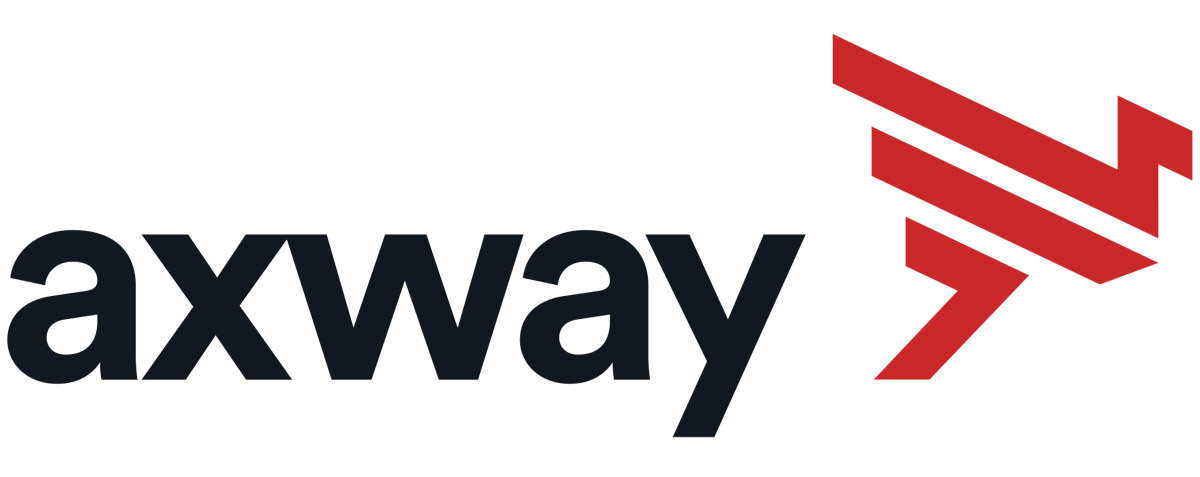Topic intro description here. Limited to 145 characters. Topic intro description here. Limited to 145 characters. Topic intro description here.
WEBINAR: HIPAA for Dummies (Part II)
eHI was joined by several hundred HIPAA-aficionados on Wednesday for our second “HIPAA for Dummies” webinar, during which we covered numerous hot topics – as dictated by our certainly NOT dumb attendees. Starting with what in the heck HIPAA stands for and wrapping up with an overview of the interplay between HIPAA, Europe’s GDRP, and new state data privacy laws in California and Virginia, in between we traveled through the land of permitted unauthorized disclosures, what happens to your health data (from a legal perspective) when it leaves the traditional health care system (ie: is sent from your doctor to your phone), and how COVID and vaccines relate to HIPAA obligations and protections.
eHI Submits Comments on HIPAA Proposed Changes
In January of this year, the Department of Health & Human Services Office of Civil Rights released the first major proposed changes to the Health Insurance Portability and Accountability Act (HIPAA) since passage of the American Recovery and Reinvestment Act in 2009. The proposed changes, if finalized, would update rules regarding disclosure of personal health information (PHI) and rights of individuals to access their PHI. If you are interested in learning more about the proposed changes, you can find a recording of and slides from eHI’s April Monthly Policy Briefing with eHI’s Senior Vice President & Counsel Alice Leiter on the topic here.
On Thursday, eHI submitted a comment letter in response to the Notice of Proposed Rulemaking, which you can find here. For more information on eHI’s privacy work, please reach out to Alice.
Policy Blog: Congress Continues to Discuss Telehealth (by Catherine Pugh)
During the COVID-19 pandemic there was a sharp increase in the use of telehealth – a 1,000 percent increase in March 2020 and a 4,000 percent increase in April 2020. Even more extreme, telehealth utilization among Medicare beneficiaries increased 13,000 percent in just a month and a half. This was largely due to federal and state governments relaxing decades-old laws and regulations. However, many of these laws and regulations were only temporarily changed – meaning that at the end of the COVID-19 public health emergency (PHE) period, the restrictions will go back into effect unless legislators enact permanent changes.
Thankfully, there is widespread agreement among stakeholders and legislators that we cannot go back to how it was before, but agreeing on exactly what permanent policies should look like is proving difficult. This week, the Creating Opportunities Now for Necessary and Effective Care Technologies (CONNECT) for Health Act of 2021 was reintroduced in the Senate and in the House. The Senate Working Group members Senators Brian Schatz (D-HI), Roger Wicker (R-MS), Ben Cardin (D-MD), John Thune (R-SD), Mark Warner (D-VA), and Cindy Hyde-Smith (R-MS) introduced the legislation along with 50 of their colleagues in the Senate. Identical legislation was introduced in the House by Telehealth Caucus members Representatives Mike Thompson (D-CA), Peter Welch (D-VT), David Schweikert (R-AZ), Bill Johnson (R-OH), and Doris Matsui (D-CA). The legislation is supported by more than 150 stakeholder organizations, including eHI.
While the CONNECT for Health Act led the way as landmark comprehensive telehealth reform legislation beginning in the 114th Congress, it is certainly not the only legislative approach to ensuring telehealth reimbursement post-COVID. Others include the Telehealth Modernization Act of 2021 (HR 1332/S 368), the Protecting Access to Post-COVID-19 Telehealth Act of 2021 (HR 366). At the crux of the debate around permanently removing restrictions on Medicare reimbursement of telehealth services are questions around controlling for overutilization of unnecessary services and protecting both the Medicare program and beneficiaries from potential fraud and abuse. These were common lines of questioning from members of the House Ways & Means Health Subcommittee, which held a hearing this week entitled Charting the Path Forward on Telehealth (find the full hearing recording here and an eHI-prepared summary here). In his opening statement, Subcommittee Chairman Lloyd Doggett (D-TX) stated his intention to introduce legislation that would enact recent recommendations from MedPAC, which calls for a temporary extension of current statutory and regulatory flexibilities while data is collected and analyzed to help inform permanent policies. In order to combat fraud and abuse, MedPAC recommended requiring in-person appointments prior to ordering high-cost durable medical equipment (DME) and lab tests. This is meant to target areas of concern outlined by OIG whereby “telefraud schemes” are used to fraudulently prescribe DME and high-cost lab tests like genetic tests. OIG clarified that in many cases, the telefraud perpetrators do not bill for the telehealth service. Ensuring program integrity and protecting patients is essential; however, we should not let the potential bad actions of a few prevent all from benefiting from what has proven to be a lifeline during the pandemic. Any legislation addressing Medicare reimbursement for telehealth services should not replace the existing arbitrary restrictions on telehealth with different arbitrary restrictions like prior in-person visit requirements.
All of this to say: we don’t know exactly what lies ahead for any of these telehealth bills, but we do know that never before has telehealth policy been at the forefront of so many healthcare discussions in D.C., and it’s certainly not a matter of if but of when. eHI and our members will continue to be a part of these on-going debates and provide updates and engagement opportunities. If you have any questions in the meantime, feel free to reach out to me at catherine@ehidc.org.
Preparing as Healthcare Data Exchanges Pave the Way for Consumer Health Initiatives
Consumer health initiatives are opening healthcare data exchanges and transforming interoperability. Emerging technologies are creating opportunities to move from point-to-point integrations between business partners to consumer-driven exchanges where third-party applications can access data on behalf of patients and members.
Federal regulations around interoperability, information blocking, and price transparency - along with the urgency to support COVID-19 testing and vaccinations - have put a spotlight on the consumer experience in healthcare. Health plans and key stakeholders are preparing their FHIR resources, but many are overlooking essential details.
eHI joined Axway and OneRecord to discuss preparation for the requirements in the CMS and ONC interoperability and information blocking final rules and help ensure a smooth, stress-free transition.
Speakers:

Jennifer Blumenthal
CEO and Co-Founder
OneRecord
Jennifer Blumenthal is the CEO and co-Founder of OneRecord. Through her journey creating a digital health platform which enables users to access and aggregate their healthcare data, Ms. Blumenthal has become an expert in the consumer healthcare space. Ms. Blumenthal is actively involved in a number of HealthIT industry initiatives as: Chair of the Privacy and Security Committee at the CommonWell Health Alliance, Chair of Consumer-Facing Technology at Carequality, Originating Committee Member of the Information Blocking Workgroup for Providers at the Sequoia Project, and Ms. Blumenthal takes an active role at the CARIN alliance promoting consumer access and consumer directed-exchange.

Ruby Raley
VP of Healthcare
Axway Inc
Ruby Raley has a background in both technology and healthcare. Starting as a programmer, she grew into a divisional CIO before moving to healthcare and life sciences where she has held a variety of customer-facing roles. Ruby also has significant supply chain experience including a stint at Cardinal Health and a strong background working with payer and providers. Currently, Ruby applies her unique market insight and perspective to help customers solve problems and reduce costs using Axway's leading edge digital integration, API and content collaboration and healthcare solutions portfolio. Ruby holds a Master's of science in systems science from the University of West Florida.

Wanneh Dixon
Director, Strategy and Programs
eHI
Wanneh previously worked as the Corporate Engagement Manager for FHI 360, an international development firm focused on global health, education and economic empowerment. At FHI 360 she managed the private sector engagement strategy to cultivate relationships with corporations, foundations, donors and membership organizations. Her global health portfolio focused on maternal mortality, non-communicable diseases, and health systems strengthening.
Wanneh holds a BSc in Information Technology from Herzing College and a M.A. in Global Development and Social Justice from St. John’s University. She lives in Maryland and serves on the Human Services Advisory Commission for the City of Rockville.
Wanneh directs our social determinants of health (SDOH) and data analytics programs.
This webinar is supported by

eHI Policy Briefing
eHI's Policy Workgroup met to discuss the Notice of Proposed Rulemaking (NPRM) proposed changes from the Office for Civil Rights (OCR) at the U.S. Department of Health and Human Services. The intent of the changes is to support individuals’ engagement in their care, remove barriers to coordinated care, and reduce regulatory burdens on the health care industry.
eHI June Policy Briefing: Measuring the Value of Digital Health
eHI hosts a monthly policy briefing on the third Tuesday of the month to learn from policymakers, staff, and health policy experts and discuss timely issues and their impact on health IT and digital health. This month's briefing will focus on measuring the value of digital health.
eHI Member Policy Briefing - Broadband
Digital health technologies can be powerful tools to overcome current barriers to health care for many populations; however, many in the country still lack access to affordable, reliable, and adequate broadband that powers these tools. This gap has been acutely felt during the COVID-19 pandemic as so many aspects of every day life shifted to virtual interactions. eHI supports sustained federal investment in broadband infrastructure to ensure everyone can benefit from cutting-edge digital health tools to access high-quality health care.
eHI Policy Steering Committee Meets with ONC
The new administration brought in new leadership at the Department of Health & Human Services, including at the Office of the National Coordinator for Health IT (ONC). In January, Dr. Micky Tripathi was named the new National Coordinator for Health IT, replacing Dr. Donald Rucker. Dr. Tripathi assumed his new role at a critical time for ONC as of April 5th, provisions of ONC’s information blocking regulations went into effect, not to mention the important role of health IT in combatting the COVID-19 pandemic.
On Tuesday, eHI staff and members of the Policy Steering Committee met with Dr. Tripathi and his team at ONC to discuss eHI’s policy principles and priorities, learn more about ONC’s ongoing work to advance interoperability, and identify areas for collaboration moving forward. ONC staff provided updates on work critical to many eHI members, including patient matching, the Trusted Exchange Framework and Common Agreement (TEFCA), and public health systems modernization. eHI looks forward to continuing to engage with ONC on our shared priorities.
eHI Urges Congress to Remove Unique Health Identifier Ban
On April 1, eHI joined more than 100 other organizations in urging Congressional Appropriators to remove language in Section 510 of the Fiscal Year 2022 Labor, Health and Human Services, and Education and Related Agencies (Labor-HHS) Appropriations bill that prohibits the US Department of Health and Human Services (HHS) from spending any federal dollars to promulgate or adopt a national unique health identifier standard. This antiquated ban has stymied federal patient matching efforts for decades and we urge removing the ban once and for all.
eHI Joins Letter on Broadband
On April 6th, eHI, along with four dozen additional organizations, sent a letter to Congress and President Biden urging establishment of a long-term, federally funded broadband benefit program to provide low-income individuals enhanced financial support for broadband. This would build off of the Congressionally established FCC Emergency Broadband Benefit program.
